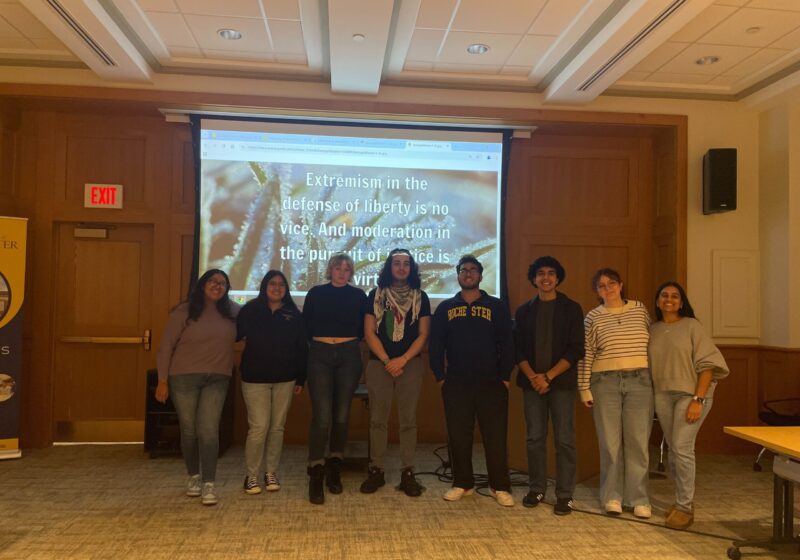New members of the community are being called to apply to the Commission on Women and Gender Equity in Academia, which recently merged with the SA Task Force that reviewed sexual misconduct. Their mission is to change the policies and culture on campus.
“We wanted to plug in and bring power to both groups by connecting with the students, and making sure that we’re aware of what they feel about situations on campus,” co-chair of the commission Amy Lerner said. “There are so many intersections on these issues between students and faculty. There are so many places where part of the reason we don’t have equity at the faculty level is because we didn’t have equity or comfort or good climate at the undergrad or the grad level.”
Anyone from any of the campuses can apply — from students to faculty and staff. The application is open now and closes Sept. 28. Current members are looking for a diverse group of individuals, representing all parts of the different schools under UR.
Members of the Task Force merged with the commission this past summer to aid with implementing the recommendations they made to the university last academic year. These recommendations were constructed after reviewing the sexual misconduct policies governing undergraduates.
“Some of the recommendations have already been finished, and there’s a few that are still in progress that we haven’t started on,” senior Amber Williams said, who is an original member from the Task Force and now a member of the commission.
Williams related this stall in implementation to low membership. Only three members remained on the Task Force over the summer; the rest had graduated last spring.
More so, Williams and Lerner believed the lack of activity over the summer in implementing the recommendations was the right move.
“I don’t think it was necessarily lack of activity on [the SA Task’s Force] part,” Lerner said. “It was partly the desire that students should be involved in those changes […] When we work on it, we want to work on it with students here.”
According to sophomore Emily Tompkins, an original member of the Task Force and now the commission, more student involvement and feedback will rejuvenate the implementation of the remaining recommendations.
Before the merge, Lerner said the commission mainly focused on addressing the issues for women across campus, and not on the issues of sexual misconduct at the undergraduate level.
“We knew that was in the good hands of the Task Force,” Lerner said. “The commission focused much more broadly on equity issues, harassment at the faculty and staff levels or by it […] and hiring, recruiting, and representation on campus.”
The commission was formed last October with students ― including undergrads, graduate students, post-docs, and residents ― and faculty from all across campus. They also issued recommendations to the University this past May and are now working in various groups with the administration to implement and receive feedback on them.
With the merge, current members feel they can do more working with and listening to each other’s perspectives.
“It’s creating a connection between faculty and students, one that isn’t always there,” Tompkins said. “With the commission and with our voice and our power, I think not only can we help to contribute to the statutory policies, but I think that we can also help change the climate, make this campus more proactive, make it more accountable, and make sure that students and faculty are being heard.”
Current members also hope to increase awareness of the issues on campus and inspire the community to act. They hope the selection of the new president will support their cause and further their mission.
“I really hope […] now that we are merged, what we can change is changing how policies are made, and making the administration see that they shouldn’t be scared of allowing students, and faculty, and staff, and representatives from who these policies are going to be affecting to go into a room to talk about how it is going to affect them,” Williams said.




